In January 2009 we became curious again and went looking ourselves for what we could discover about the boatpeople. What we found was a nightmare. The boatpeople were being arrested along the Andaman coast north and south of Phuket and being transferred into the arms of the Internal Security Operations Command. Using paramilitary volunteers, Isoc was hiding the boatpeople on an island off the coast of Ranong, the province on Thailand's coastal border with Burma, then arranging to have them pushed back out to sea, with little food or water. It was inhumane and unacceptable.
With the article published in Phuketwan on January 9, 2009, the world began to learn what the word 'Rohingya' meant and how poorly these people were being treated by Burma (Myanmar) and Thailand. Hundreds of men are thought to have perished at sea because of the ''pushbacks.'' Survivors were washed up in Indonesia and India. Investigators feared that the men were joining the insurrection in Thailand's Deep South but it was persecution in Burma that was forcing them to risk their lives.
On January 15, 2009, the South China Morning Post newspaper in Hong Kong, which had worked with Phuketwan to cover the story, published a front-page account with photographs by an Australian tourist who had witnessed and photographed Rohingya being laid out like sardines at one end of a Similans beach while tourists enjoyed their holiday at the other end of the beach.
Before the end of January, CNN produced the ''smoking gun'' images that showed the Rohingya being pulled out to sea by the Thai military, with only a moderate chance of survival. Then Prime Minister Abhisit Vejjajiva promised an investigation. No investigation ever took place. The Thai military is not known to conduct investigations, nor to ever reveal to the public anything that might reflect poorly on the Thai military.
The Rohingya issue faded from view. Rohingya in Burma hoped that changes to the constitution would given them the citizenship they'd hoped for. Despite opposition spokesperson Aung San Suu Kyi winning her freedom, nothing changed for the persecuted Rohingya.
On January 1, 2013, Phuketwan reporters travelled by speedboat to intercept a Rohingya boat off the southern Phuket destination of Rawai. This boat was different to other boats: there were women and children on board. We were shocked to see whole families in the basic primitive conditions that usually only the Rohingya menfolk experienced. This was because two outbreaks of violence in Burma's Arakan state in 2012 had led to the torching of family homes, and the refugee camps were being deprived of essentials by the Rohingya's hateful neighbors. The children said they were fleeing ''certain death.'' Those families were trucked back to Ranong and put back on another boat.
Perhaps because it had been revealed that women and children were now fleeing Burma, Thai authorities raided a number of traffickers' camps on the Thai-Malaysia border and apprehended several vessels off the Andaman coast, holding about 2200 men, women and children in ''protective custody'' and promising to resolve their status and their futures within six months. In late January, Phuketwan intercepted another vessel off Phuket and saw the Royal Thai Navy ''help on'' a boatload of Rohingya towards Malaysia with water and food.
By March it was becoming obvious that there was no real plan to care for the Rohingya who had been apprehended and held in Thailand. A small group of men were arrested on Phuket and the headline read 'Phuket Boatpeople Vanish as Rohingya Lose Out to Lies and Propaganda.' Not much changed in the coming months. Because of Burma's racist treatment of the Rohingya, Thailand's reputation was bound to suffer.
A mysterious shooting north of Phuket led to accusations that the Navy was involved in trafficking large numbers of boatpeople and, although a Vice Admiral denied Navy involvement, he did confirm that trafficking had taken place. By April there were reports of several deaths of Rohingya in custody because Immigration cells were not made to hold people in close confinement. Another boat landed on Phuket and the occupants were forced to go straight into captivity, even though they had already been held prisoners in India.
By June Thailand's plan to find answers to the Rohingya issue was falling apart with women and children becoming especially adept at contacting traffickers in the communities near their family shelters throughout Thailand and escaping to Malaysia. In one case in the province of Phang Nga, a local policeman was arested and charged with assisting a trafficker accused of rape. It was to open the door to much wider accusations of official help in assisting Rohingya to flee into the arms of people smugglers, and worse.
A woman nine months pregnant joined escapers in July in a plain message that Thailand's policy on the Rohingya was not working. With the apprehended Rohingya fleeing at an increasingly fast rate, and fresh boats beginning to arrive from Burma, Thai authorities must have been wondering what they could possibly do. The Rohingya did not want to stay in Thailand, just to move through the country to Malaysia. In August, just to make their feelings plain, male Rohingya prisoners at Phang Nga Immigration staged what some officials called a ''riot.''
On October 21, Phuketwan reporters carried a report headlined 'Captive Rohingya Being Sold By Thai Officials.' The article followed a stakeout by journalists of Ranong Immigration that showed busloads of Rohingya were being transferred there in the middle of the night, with increasing frequency. Phuketwan reporters followed one truckload the next day to a pier. Although we waited but did not see the Rohingya actually take to the water, we'd been told that this was how Rohingya were being recycled into the trafficking circle. And how Thailand was secretly easing its ''problem'' with its racist neighbor, Burma, and the Rohingya people Burma doesn't want.
On December 3, Phuketwan published its report of an investigation that showed that hundreds of Rohingya are being secretly processed through hidden jungle camps in southern Thailand, with the connivance of Immigration officials, the help of human traffickers, and the possible payments of large sums of money. One escaper told us he'd counted 16 deaths in just one of four camps in 14 days and seen Rohingya women raped and men beaten to death. Two days later, the Reuters news agency published an extended report. The Phuketwan team can only wonder whether the deaths and the exposures will keep happening ever five years, or more frequently now.
Reporters Prepared for Prison:
http://www.bangkokpost.com/news/local/387125/reporters-prepared-for-prison-in-navy-defamation-lawsuit/
SPECIAL REPORT-Thailand secretly dumps Myanmar refugees into trafficking rings
http://www.reuters.com/article/2013/12/04/thailand-rohingya-idUSL4N0JH0GX20131204/
Thailand's Secret Trafficking Camps, Where Boatpeople Are Being Beaten, Raped and Killed, Say Escapers
http://phuketwan.com/tourism/thailands-secret-camps-boatpeople-beaten-raped-killed-survivors-19333//

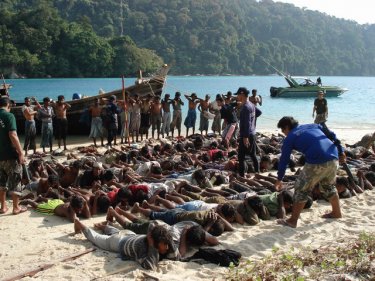






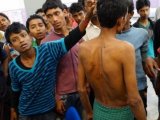
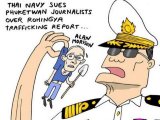

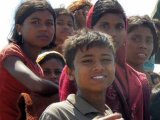
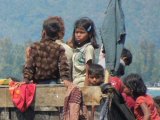


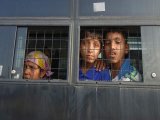

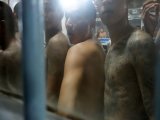
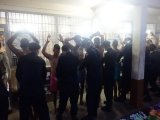


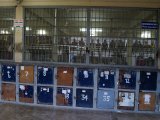

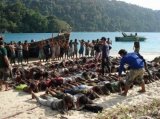
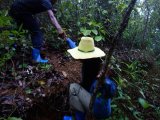

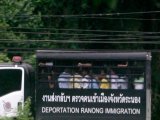

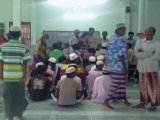
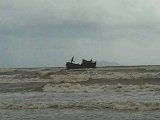
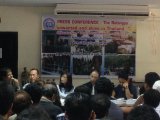
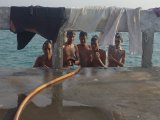
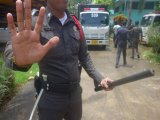
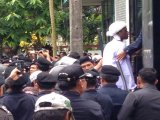

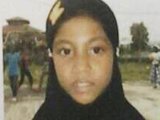

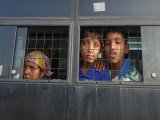
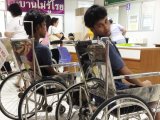
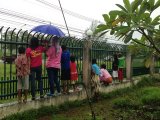

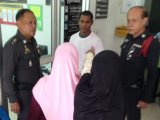

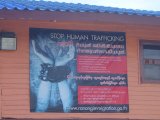
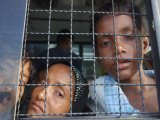
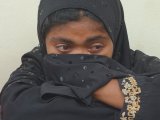

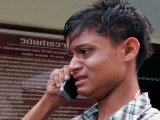

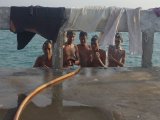
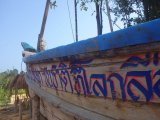
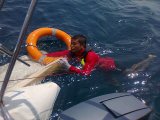
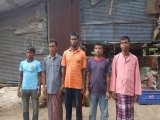
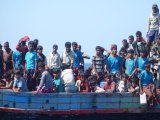
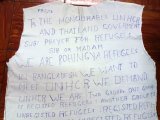
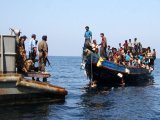
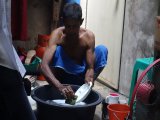

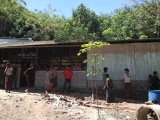
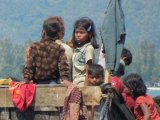

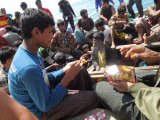
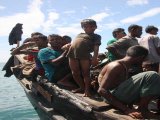



Can't imagine the Rohingya people would ever want to come to Thailand as it has frequently demonstrated with impunity it's terrible human rights record.
http://www.hrw.org/world-report/2013/country-chapters/thailand?page=3
The only way to force Thailand to take responsibilty is to apply sanctions, and to perhaps boycott the country. Hurt them where it hurts the most, in their pocket, only then they will take notice of others.
Posted by reader on December 8, 2013 08:45